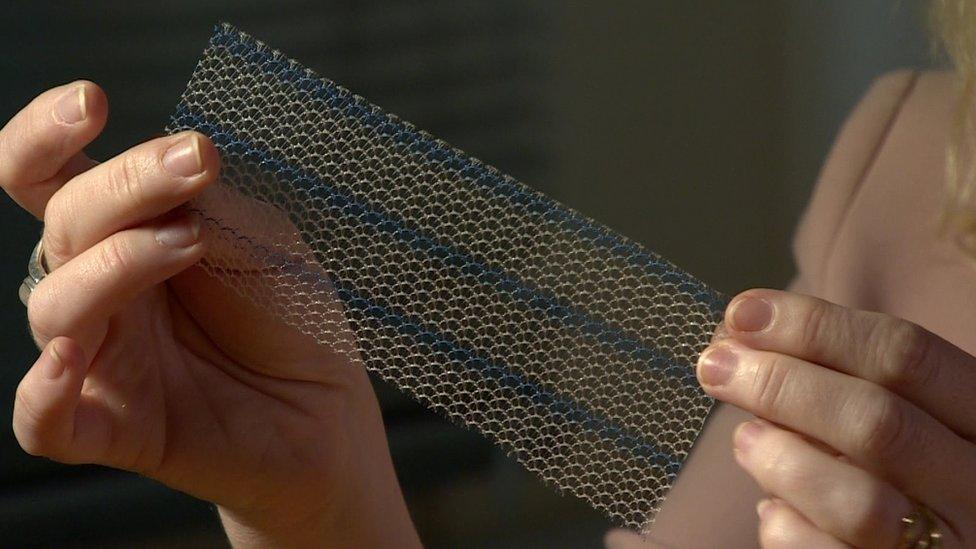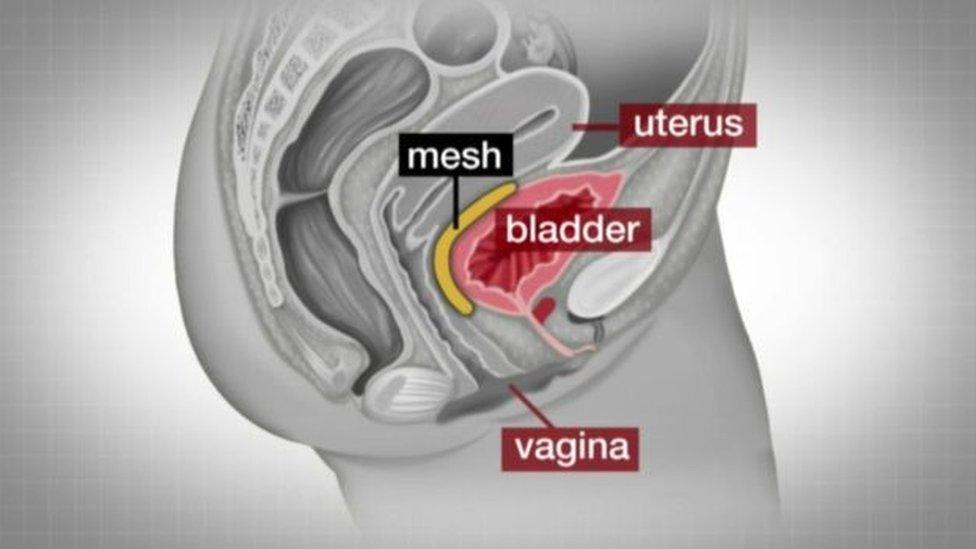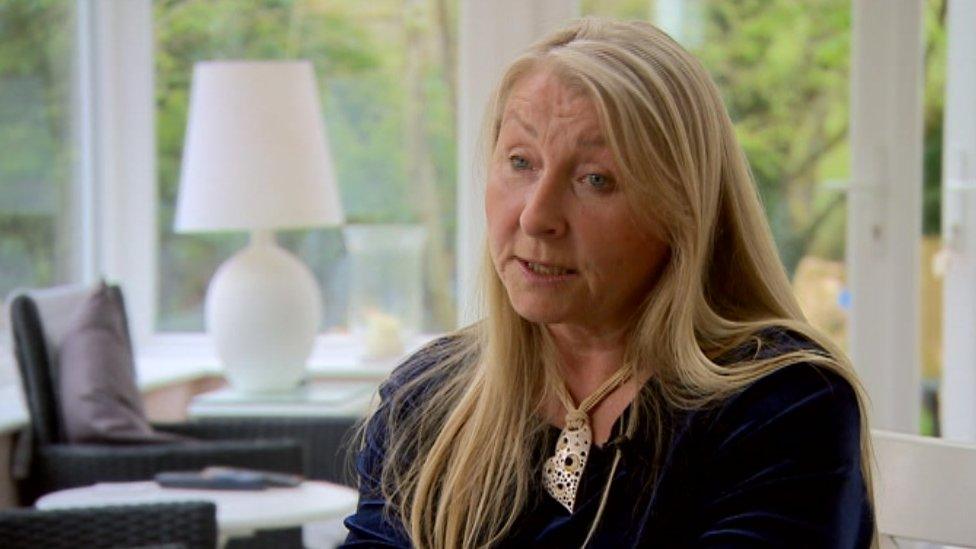Vaginal mesh: Woman unable to have sex after mesh surgery
- Published

The woman was left with debilitating pain following the surgical procedure
A woman says she has been left with debilitating pain and is unable to have sex following a vaginal mesh procedure which went "very wrong".
The 57-year-old from Swansea, who did not want to be named, said she was not properly advised on the risks.
The mother of two said sex with her husband had become "too painful and embarrassing".
Swansea Bay health board apologised and said it had taken action to make improvements.
The woman was implanted with tension-free vaginal tape (TVT), a type of mesh used to treat urinary incontinence.
"Had I known there were complications or other, less invasive options, I would have tried them before going straight to an operation," the woman said.
She said her gynaecologist told her he had performed the procedure for 12 years and only 12 people had had "minor problems".
The woman has now settled a medical negligence claim with Swansea Bay University Health Board.
The claim also found that there was a failure to trial medication before she was offered surgery.
"I tried to have intercourse with my husband around six weeks after the surgery, but he could feel the mesh inside me and said it felt like a cheese grater to him," the woman said.
"He started to urinate blood and caught an infection."
The woman started leaking urine when coughing in 2010, and gradually her condition stopped her from going out.
According to Lime Solicitors, the law firm which represented the woman, she was referred by her GP in April 2012 to a consultant obstetrician and gynaecologist at Neath Port Talbot Hospital, who she saw on multiple occasions over the next few months, the last time being in February 2013.
She was seen again in January 2016 and had surgery at Singleton Hospital in Swansea in October 2017, aged 50.
But in June 2018, she noticed the stitches were unravelling and she was seen by doctors for the first time since her surgery.
The net-like implant was protruding through her vagina, and the gynaecologist said the procedure had gone "very wrong", the solicitors said.
What are mesh implants?

Vaginal mesh is often made of a polypropylene, a type of plastic
Over 20 years, more than 100,000 women across the UK had surgical mesh implants to treat pelvic organ prolapse and stress urinary incontinence
The mesh, usually made from synthetic polypropylene, is intended to repair damaged or weakened tissue
The use of vaginal mesh for stress urinary incontinence and prolapse has been paused in Wales and England since 2018, and in Scotland since 2014
Once the mesh is implanted, it is very difficult to remove

The woman's exposed mesh was removed in September 2018, but she lives with debilitating symptoms.
"My incontinence is so bad that I have to wear pads all day and all night," she said.
"All I do is leak. I can be sat down and the pad will be filling up without me realising."
She said she found herself in a "catch 22" situation, often dehydrated as she leaks so much fluid, but leaking more if she drinks more.
"Before the incontinence, my social life was active," she said.
"I would take my grandchildren out, go walking and I loved swimming, but I haven't been for several years as I have to wear nappies.
"I haven't walked my dog since having the mesh inserted because it's too painful."
'I don't want to move or laugh'
She added: "People just think I am being grumpy but they don't know that I don't want to move or laugh in case I wet myself.
"I look back at the things I used to do like taking the grandchildren to school and it feels like somebody else, a different person, did this."
Maryam Abdullah, a medical negligence associate who led the claim, said there was a lack of knowledge when it came to mesh.
"Those affected are made to feel like the pain they are going through and the symptoms they are experiencing are not bad - there is almost a disbelief from medical experts," she said.
The use of vaginal mesh for stress urinary incontinence and prolapse has been paused in Wales and England since 2018, following a review.
In a statement, the health board said: "We sincerely apologise to the patient for failings in the way her case was managed, and we recognise the impact this has had.
"We have taken action to make improvements from the learnings from this case.
"However, this procedure is not currently being carried out in Swansea Bay, after it was suspended more than five years ago."
Related topics
- Published8 July 2020

- Published7 September 2018

- Published8 July 2020
